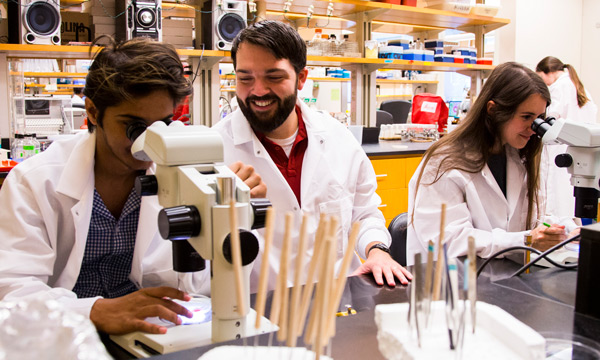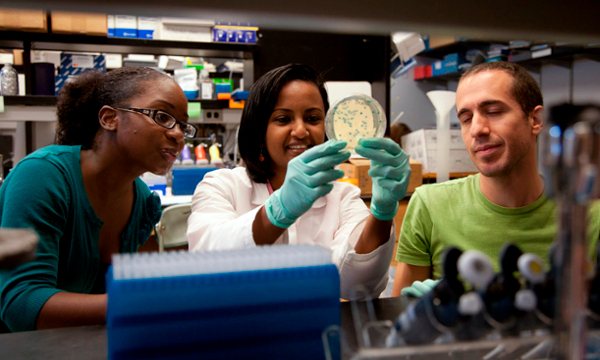Mission, Vision, and Values
Mission Statement

The major responsibility of the Division is the oversight of graduate education in the biological and biomedical sciences, including the recruitment, admission, support, and academic counseling of graduate students. The Division advises the academic Deans of the University on policies regarding graduate education in biological/biomedical science, and on measures for further development of life sciences at Emory. The Division also assists the faculty in obtaining outside sources of support for graduate education. In these capacities, it functions as a special arm of the Laney Graduate School. With respect to other organizational units within the University, it is important to note that the Division is synergistic, not competitive, with its constituent Departments, which retain their traditional prerogatives in all areas except graduate education, where their collective interests are represented by the Division.
Vision Statement

The Graduate Division of Biological and Biomedical Sciences, as part of the Laney Graduate School at Emory, will be known as the most effective venue for graduate training, successfully preparing a diverse student body for a wide range of careers related to biological and biomedical research.
Value Statement

The GDBBS team delivers the highest level of professional service by:
Advocating for all students
Recognizing and respecting diversity
Providing collaborative leadership for the success of each program
Fostering academic growth and personal development
Supporting individual career paths





